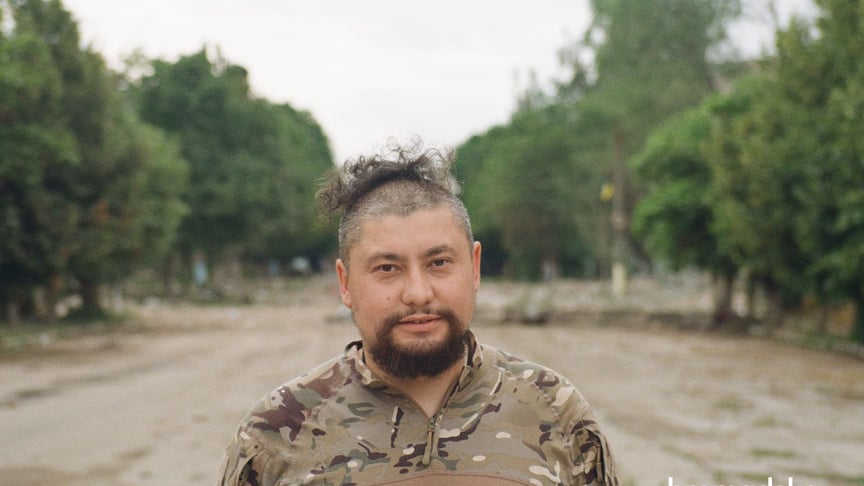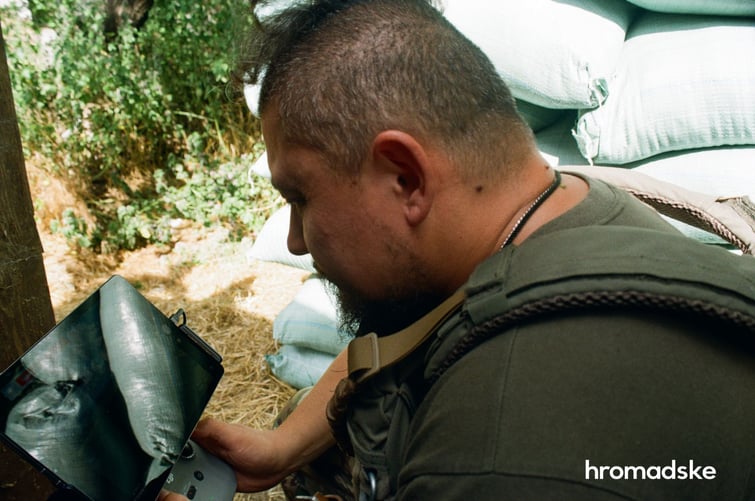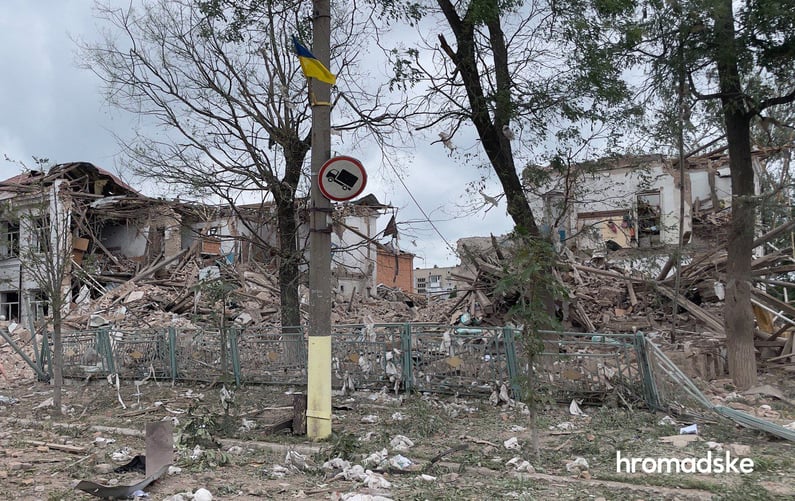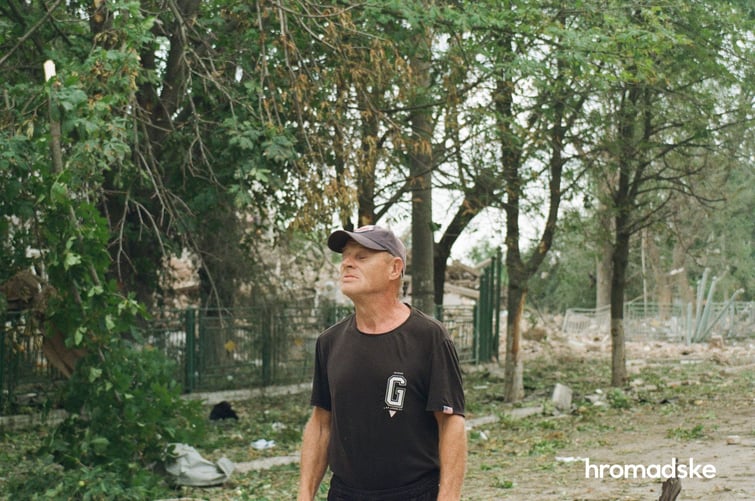Homework: to survive. Seeking perspectives from my history teacher at front

After the start of the full-scale invasion, Serhiy Maratovych replaced his black leather briefcase with a drone control panel and his velour jacket with a plate carrier.
Four years ago, I was sitting at my desk, while Serhiy Maratovych walked around the history classroom telling us about communists and repression. Now I'm sitting next to him in a village near Orikhiv in Zaporizhzhya Oblast and learning to distinguish between the sounds of outgoing and incoming artillery shells. Meanwhile, my teacher recalls how he came under fire in Bakhmut.
"First, a loud sound, for a second I was in the air, then I flew through the floor to the ground floor. My whole mouth was covered in dust, my teeth rattled like iron on glass. The taste of Bakhmut."
A missile hit the house from where they were operating the drones. Serhiy flew from the first floor through the broken floor to the ground floor, and thanks to the bed that crushed him from above, he remained unharmed. His partner was less fortunate - he was covered by the ceiling. But his brothers-in-arms rescued him nonetheless.
"It fell on Andriy’s back. His pelvis and almost all his ribs were broken. Now he is gradually starting to walk."
Maratovych talks about his experience in Bakhmut easily, with a smile. For a second, it even seems to me that this is another anecdotal life story that he used to tell us at school. But this time, we are not in Lviv on a field trip, but a few kilometers from point zero, and these are stories of survival, not children's tales.
"For 11 years I taught at school, the lectures I had already memorized and so on sometimes seemed unreal to me. But the weapon in my hands and the helmet on my head brought me back to the here and now," my former teacher reflects.
The “here and now” is the drone and the Starlink. No checking homework, no tests or retakes after school, no trips or graduations.

"I don't know how I’ll be able to teach when I come back. How to go back to school? It will be very odd somehow. I've been here for so long, I've gotten used to it, I can't live without it. I can't live without war anymore. I'll have to get used to peaceful life the same way I got used to war. But this realization that you're used to it, it's already a part of you, and it's a little bit painful, of course. But what can you do? This is our 'here and now'."
On excursions, the teacher took us only to places he had visited himself. So it always felt like you were absorbing his emotions and experience. In each city, he behaved as if he had lived there in his past life. And that made us feel like locals ourselves.
My teacher mobilized in the first days of the invasion. Now he is fighting on the Zaporizhzhya axis.
Our conversation on the porch was interrupted by a phone call: a voice from the speaker made my former teacher jump into a gray SUV with barely a few words. From the driver's seat, Maratovych gestured to the passenger seat.
"Now we're off to Orikhiv, which is your poor man’s Bakhmut. Close the door."

The destroyed school in Orikhiv
In Orikhiv, after passing down one of the town's abandoned streets, we came upon the ruins of a school. I gestured greeting to a man sweeping the yard - signs of a recent explosion scattered debris of slate, glass, and leaves fallen well ahead of the season across the ground. His return was a heavy, indifferent look.
We and the man with the broom were the only people on the street. While we were looking at the ruins, we didn't notice a gentleman with a bicycle under one arm and a bucket under the other joining us.
When we asked if he was a local, the man rubbed his forehead, took a deep breath, and whispered, hoarsely: "Yes."
He introduced himself as Volodymyr. His whole life was spent in Orikhiv. He studied at a school from which almost nothing remains.
"There was a principal's office on the first floor. I remember being taken there often, when I was fooling around. Hah, and my classroom was on the ground floor, near that beam that sticks out. Fuck, this was my classroom, and there are no walls left. Children used to learn in these walls, and now there is only death here."

In recent months, Volodymyr has been coming here almost every day to get food for the dogs. The school served as a help center, a canteen, and a place to meet friends who hadn't left the town.
"I have 22 dogs on the street there. There are no people, I'm alone. They will just die, you know? Who is going to feed them? So I used to come in the afternoon, sometimes I ate myself, picked up what was left, and fed the little ones. To see the neighbors, to talk to them. As I'm standing here talking to you, some of them may be lying under these ruins..."
While I was in Orikhiv, it was quiet. Apart from the barking of hungry dogs, the shouts of the military, the sounds of strikes, the firing of Ukrainian artillery, the noise of armored vehicles, and the rustling of wind on the slate sent to the trees by the shock wave, Orikhiv was quiet.
I was accompanied by fences cracked by shrapnel. Buildings threw off their roofs like a hat at a meeting - almost all of them were without hats. Window frames invited you to visit, to look at empty children's rooms and tubes in the bathroom, still standing still and waiting for their owners. Orikhiv was quiet.
The next morning, after my visit to the town, I read the news: "The occupiers hit a residential area in Orikhiv, Zaporizhzhya Oblast, with a guided aerial bomb when humanitarian aid was being distributed there. Four people were killed and 11 wounded."
I do not know anything about the fate of Volodymyr, whom I met in Orikhiv, a man who fed dogs and often went to collect humanitarian aid.
Author: Maksym Chornyi
- Share: